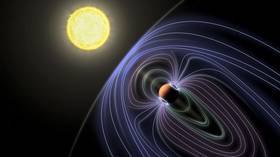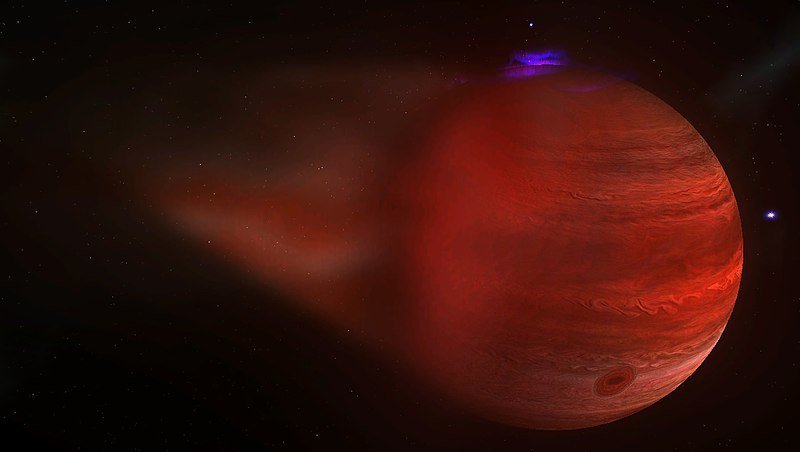Something out there? Scientists may have detected radio emissions from a distant exoplanet for the first time ever

Scientists have detected what could be the first radio emission collected from a planet beyond our solar system, in a potential game changer in the hunt for habitable worlds ripe for colonization.
An international team of scientists used the Netherland's Low Frequency Array (LOFAR) radio telescope to explore three systems known to contain exoplanets: 55 Cancri (41 light-years away), Upsilon Andromedae (44 light-years away), and Tau Bootis (51 light years away).
Only the Tau Bootis system emitted the radio bursts the researchers were expecting based on previous tests performed on Jupiter. Tau Bootis produced “bursty” emissions measuring 14-21 MHz, as they’re described in the scientific literature.
“We present one of the first hints of detecting an exoplanet in the radio realm,” lead researcher Jake D. Turner said.
“The signal is from the Tau Bootis system, which contains a binary star and an exoplanet. We make the case for an emission by the planet itself. From the strength and polarization of the radio signal and the planet’s magnetic field, it is compatible with theoretical predictions.”
Normally astrophysicists employ the transit method which measures the brightness of stars and tracks any dips for signs that an object, typically an exoplanet, is passing between the Earth and the distant star.
However, if this new research is verified, it will show that observing a planet's magnetic field to infer its composition and the nature of its atmosphere, if it has one at all, is a viable addition to both the search for extraterrestrial life and suitable, uninhabited worlds for human habitation.
In the case of Tau Bootis, the stellar wind, charged particles emitted by its binary pair, clanged off the planet's magnetic field, causing major “bursty” shifts in radio emissions.
A hot-Jupiter exoplanet was previously discovered on a 3.3128-day orbit around Tau Bootis' binary stars and this is suspected to be the source of the radio signal, suggesting a cosmic ‘ping’ which may point us to a habitable world.

They suspect the planet's surface magnetic field strength is roughly five to 11 gauss (the unit of measurement for magnetic field strength), while Jupiter's varies from four to 13, for reference.
Based on comparisons with Jupiter, which was found to have a core of metallic hydrogen, the researchers now suspect the method may help sort potentially habitable worlds from others, in the ongoing search for new colonies.
“The magnetic field of Earth-like exoplanets may contribute to their possible habitability,” Turner explained, “by shielding their own atmospheres from solar wind and cosmic rays, and protecting the planet from atmospheric loss.”
The researchers caution however, that their signal is weak and that their findings must be verified by other low-frequency telescopes, in order to rule out the possibility that stellar flares may have caused the signal.
Also on rt.com Breakthrough exoplanet discovery may lead humanity to finding the rogue Planet NineThink your friends would be interested? Share this story!















